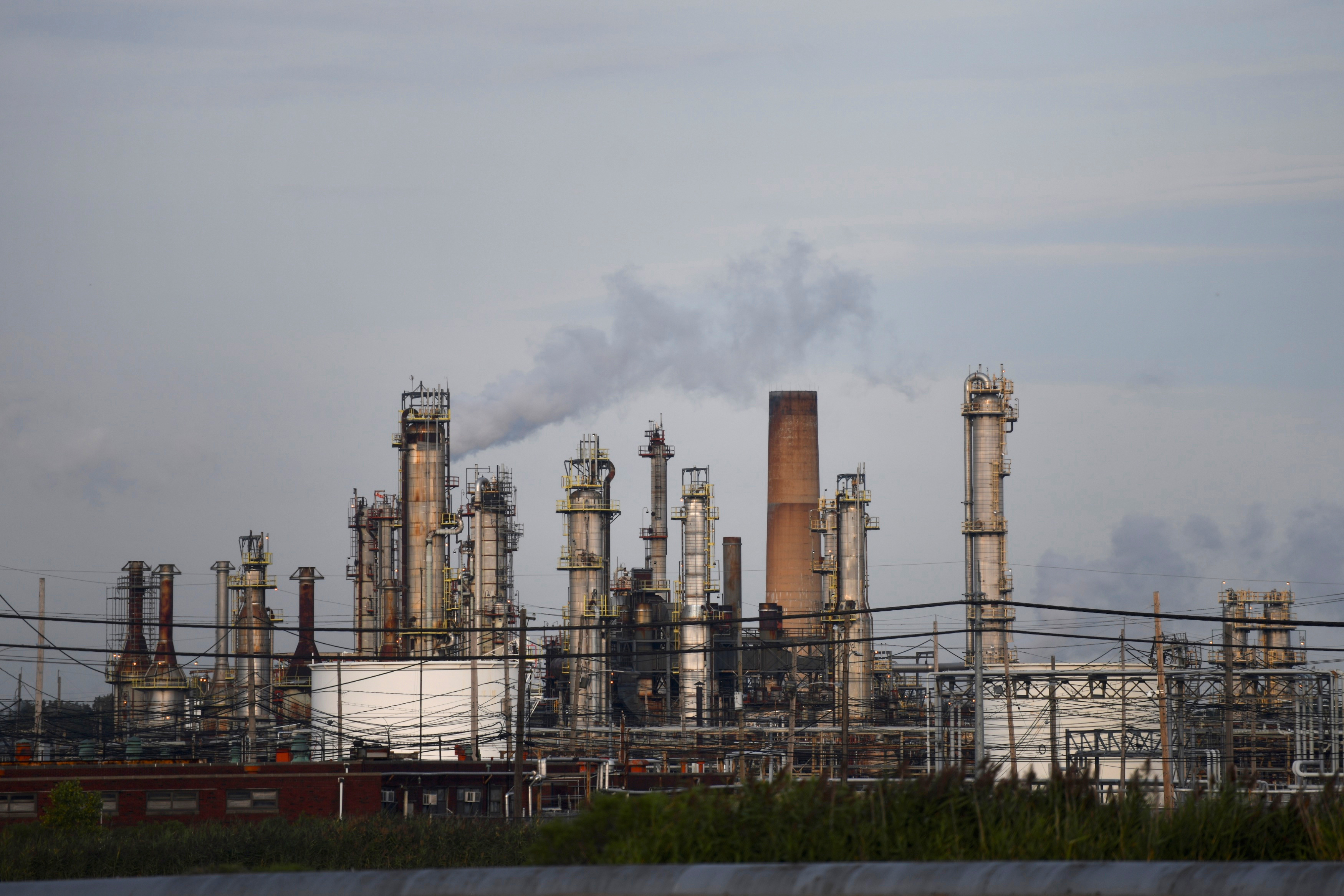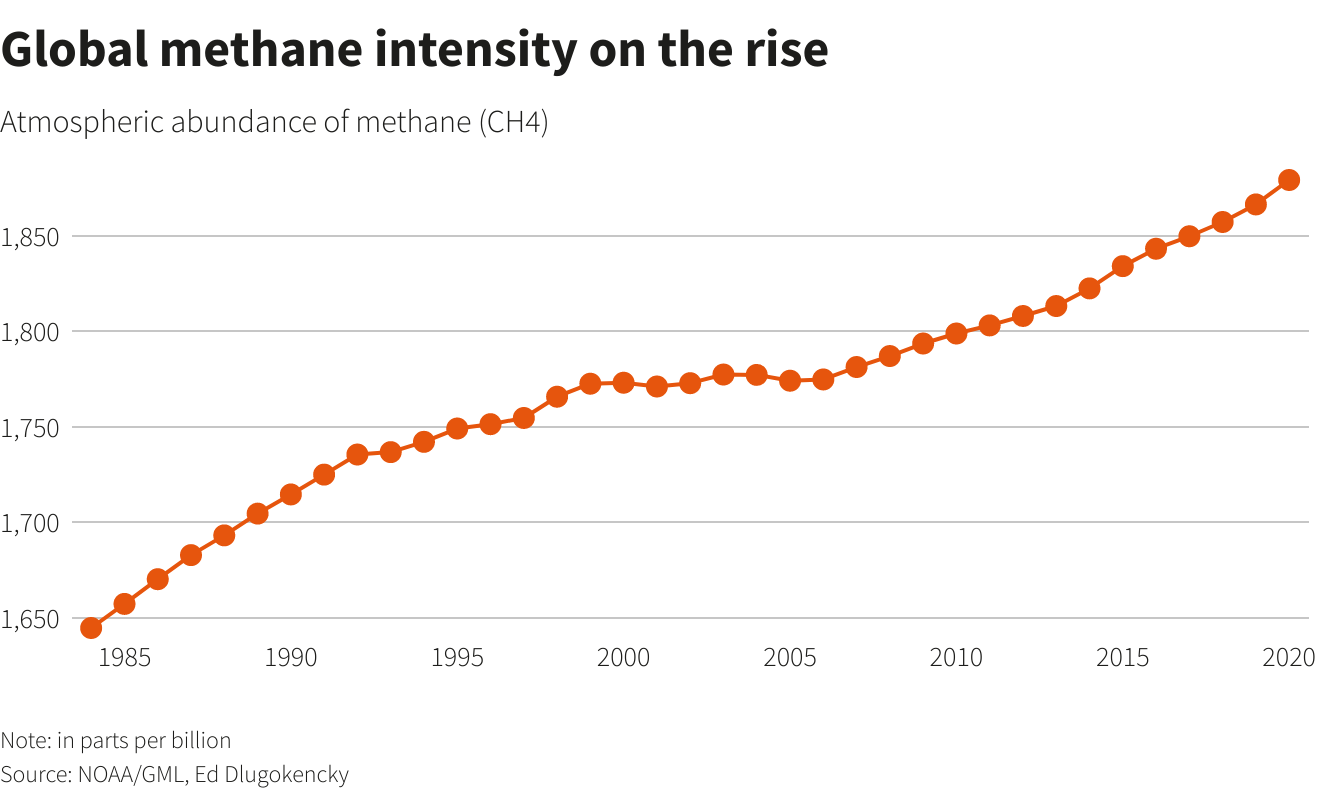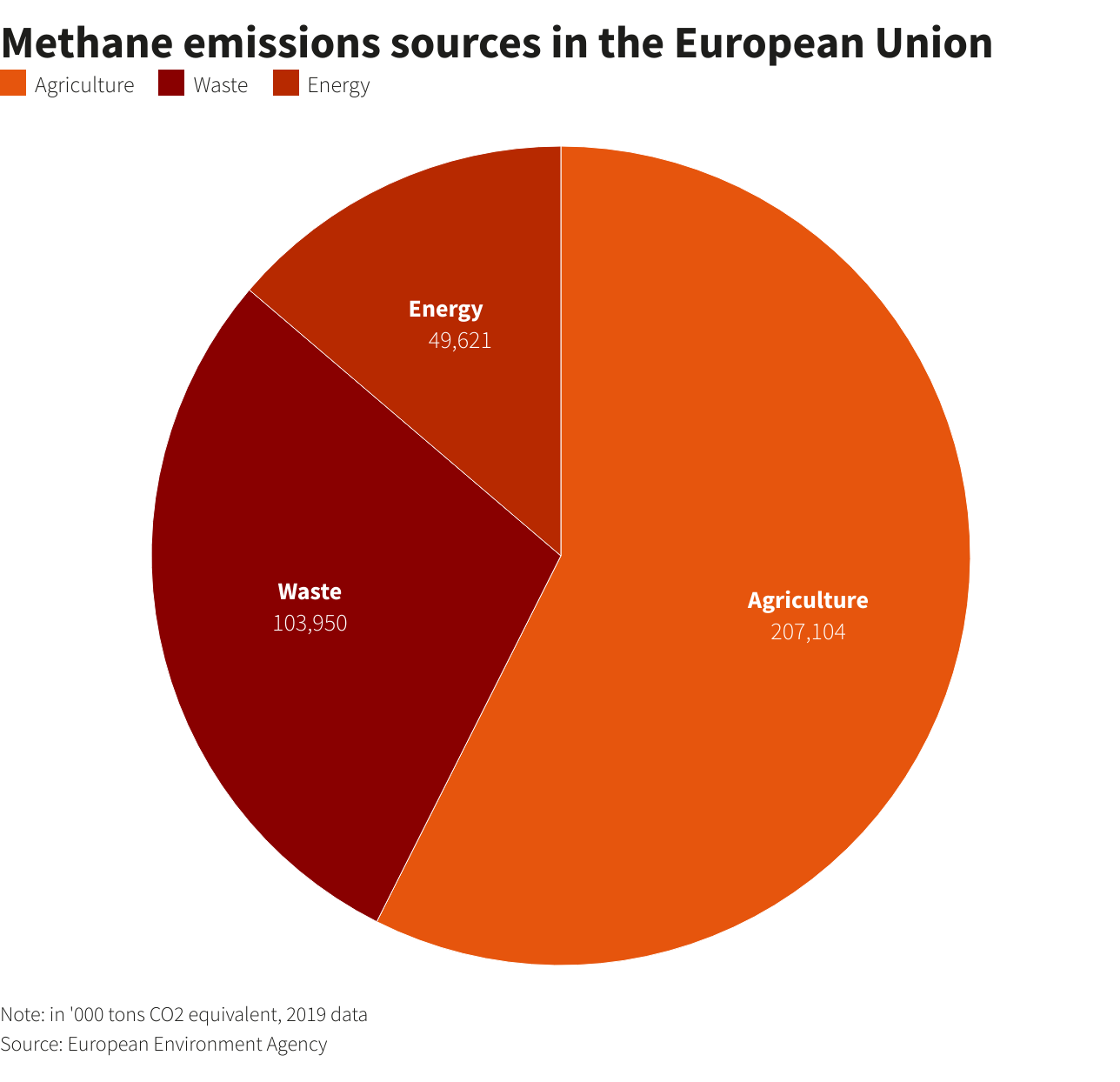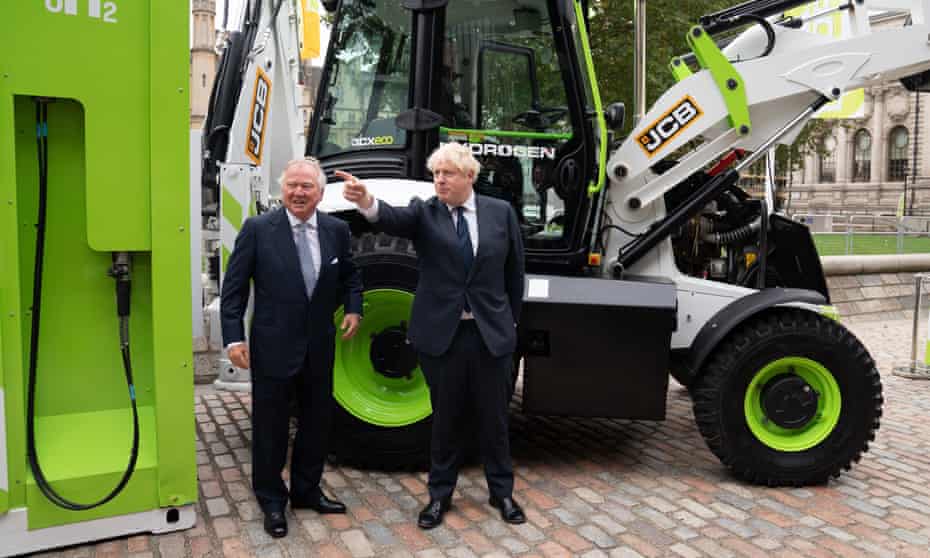It’s possible that I shall make an ass of myself. But in that case one can always get out of it with a little dialectic. I have, of course, so worded my proposition as to be right either way (K.Marx, Letter to F.Engels on the Indian Mutiny)
Monday, November 01, 2021
TURKISH DELIGHT
LONDON (Reuters) - Chile's energy minister and Canada's environment minister are among signatories to a letter calling for COP26 negotiators to put a true price on carbon emissions, a group overseen by the World Bank said on Monday.

World leaders began arriving on Monday at the U.N. COP26 conference, seen as critical to averting the most disastrous effects of climate change in the future. Their challenge was made even more daunting by the failure of major industrial nations to agree ambitious new commitments.
The COP26 negotiations must mean more than "a worthy communique full of vague pledges", the Carbon Pricing Leadership Coalition said in the letter.
"There will be very little chance for success in combating climate change if countries and companies do not collaborate with each other," Chilean Energy Minister Juan Carlos Jobet, who is also co-chair of the CPLC, said in a statement.
"The most cost-efficient way to do it is through carbon pricing."
Other signatories to the letter include Lord Barker of Battle, the executive chairman of En+, and Thomas-Olivier Leautier, chief economist at Electricite de France.
Exxon Mobil Corp called last week for a transparent carbon price.
(Reporting by Carolyn Cohn; Editing by Mark Heinrich)
Lauren Pelley

Our planet is changing. So is our journalism. This story is part of a CBC News initiative entitled to show and explain the effects of climate change and what is being done about it.
Curbing climate change and improving air quality could provide greater health benefits in our lifetime than previously thought, potentially preventing millions of deaths and hospitalizations in the U.S. alone during the next half-century, new research suggests.
The paper from a team at Duke University in Durham, N.C., was published in the peer-reviewed scientific journal PNAS on Monday. It is based on an analysis of more than 40 studies on air pollution and human health, coupled with climate modelling and simulations available through NASA.
The researchers found that, over the next 50 years, limiting global warming to no more than 2 C could prevent roughly 4.5 million premature deaths and several million more hospitalizations and emergency room visits across the U.S. — when compared to a scenario where climate change is left "largely unmitigated."
Those rapid, short-term benefits stem primarily from air quality improvements and outweigh any associated costs, the researchers wrote. They estimated this could lead to "tens of trillions of dollars" in benefits from avoided deaths.
Lead author Drew Shindell, a professor in the division of earth and climate sciences at Duke University, said he was surprised the results "were just so enormous."
"We think of our air as being relatively clean in North America," he said. "And so one of the things I think is so incredible is how many people are still affected by our air quality, even though it's so much better than it was decades ago."
The striking predictions, according to Shindell, suggest human actions to curb air pollution now can make a difference in both the long and short term.
"Fewer children going to the hospital with asthma attacks, fewer elderly people dying of respiratory illnesses or heart attacks," he said.
"I think most anywhere that takes action to mitigate climate change can expect to see enormous benefits very, very rapidly … if the whole world co-operates, then of course, we also solve the climate crisis."
Health benefits 'larger' than previously estimated
Climate change mitigation, the new paper noted, "involves a global transition to low carbon energy, energy efficiency, low demand for carbon-intensive goods and services, and a reduction in emissions of non-CO2 climate-altering pollutants."
The research was published while global leaders are gathering in Glasgow for the COP26 climate summit, which has a key goal to "secure global net zero by mid-century and keep 1.5 degrees within reach."
The Conference of Parties (COP), as it's known, meets every year and is the global decision-making body set up in the early 1990s to implement the United Nations Framework Convention on Climate Change and subsequent climate agreements.
On Monday during the summit, Prime Minister Justin Trudeau announced Canada will impose a hard cap on emissions from the oil and gas sector, in hopes of curbing the growth of one of the country's largest industries to help hit that global goal.
The target is rooted in the 2015 Paris Agreement, when close to 200 countries committed to cutting greenhouse gas emissions in order to limit global warming to well below 2 C — and preferably below 1.5 C — compared to the pre-industrial era.
The Duke University analysis incorporated those targets, and while it was centred on only one country, both Shindell and outside climate researchers who weren't connected with the study say there are takeaways for the rest of the world — Canada included.
"Addressing the climate crisis in Canada means eliminating the use of fossil fuels within decades. So when we do that, we get those same kinds of benefits that they found in this U.S. study," said Laura Tozer, an assistant professor of environmental studies at the University of Toronto.

A rapid shift to a 2 C pathway could reduce the premature death toll tied to air pollution by 40 per cent in just a decade, the research team found, with broader health benefits of cleaner air "far larger than previously estimated" when it comes to reducing hospitalizations and emergency visits tied to respiratory conditions.
Hitting that target could also maintain productivity and prevent major crop losses, the paper continued.
"Considering these additional benefits of emissions reductions, benefits outweigh costs even in the near-term," the authors wrote.
Ian Mauro, executive director of the Prairie Climate Centre, called the paper a "breakthrough" study that overturns notions of climate change being a long-term, global issue, as opposed to one where rapid, regional initiatives can spark better outcomes in the not-so-distant future.
"This study actually shows when you take local action, there are local benefits that contribute to solving that global problem," he said. "It starts with cities, it starts with towns, it starts with big industry."

Canada already facing climate change impacts
Throughout Canada, the influence of climate change on people's health and well-being is already being felt at a local level, even beyond the direct impact of air pollution.
In the Maritimes, coastal towns are now vulnerable to fierce storms and rising sea levels, with the ocean potentially rising up to 2.5 metres around Nova Scotia within the next 80 years.
In Western Canada, communities have been ravaged by wildfires. Roughly 1,600 fires burned nearly 8,700 square kilometres of land this year in B.C. alone, as a "heat dome" claimed 595 lives, set scorching temperature records and burned down the town of Lytton within minutes.
And in the North, rapidly melting permafrost is threatening people's livelihoods, elevating the risk of wildfires and flood warnings, and releasing toxic mercury that's now showing up in slightly elevated levels in whitefish, a dietary staple in some communities.
"Mercury is kind of the zenith of the number one quantifiable physical health-altering issue that we can see with climate change right now," said Chief Dana Tizya-Tramm, of the Vuntut Gwitchin First Nation in northern Yukon.
Avoiding those kinds of dire impacts should be a pressing concern for governments of all levels, experts and advocates warn.
But while Shindell's research showed clear short-term health and economic benefits of mitigating climate change, he acknowledged his team's forward-looking approach does enter "uncharted territory."
The modelling was meant to offer a middle-of-the-road look at a range of potential scenarios, though determining specific local outcomes can be trickier. Still, he said, it offers a hopeful take on what's possible within our lifetimes.
"We often hear in climate change that it's expensive to do something," said Shindell. "But it's more expensive not to do anything."
Retailer that raised salaries to attract talent remains an outlier

When Altitude Sports started hiring for its holiday rush, the Canadian e-commerce retailer ran into a recruiting problem: There weren’t enough people to fill the available positions.
“We didn't have the traction to reach our target,” Altitude Sports co-CEO Maxime Dubois said in an interview. “We went to the market and really studied the situation and found out that we weren't competitive enough.”
So the outdoor gear and clothing company raised wages by $2 an hour for its customer service and distribution centre workers.
Canada’s tight labour market has left many retailers scrambling to attract workers ahead of the holiday shopping season, a massive sales period that for some eclipses the rest of the year.
Economists say that despite the apparent worker shortage, broad wage increases haven't followed.
Yet Altitude Sports shows the effectiveness of a pay hike.
The Montreal-based retailer's base pay is now $16.50 an hour — $3 above Quebec’s minimum wage — though some employees make more.
After raising wages, hiring became easier. The company's workforce quickly climbed to 520 workers, up from 220, as it ramps up for its busy holiday period.
“We adjusted to the market to make sure that we were still relevant for current and new employees,” Dubois said. “We started seeing the effect in our hiring pipeline right away.”
Many retailers started hiring early for the holidays this year but a review of job postings suggests some retail positions continue to go unfilled after several weeks.
While some employers blame generous pandemic benefits for keeping people at home, economists say there are several factors contributing to the labour crunch.
“A lot of restaurants and retail stores were closed for extended periods of time during the pandemic so some workers have left the industry,” said Fabian Lange, an economics professor at McGill University. “They may have gone back to school or pursued other interests, so that would contribute to the shortage.”
He dismissed the suggestion that unemployment benefits have discouraged people from finding a job or that low-wage workers have accumulated enough savings to sit out of the workforce for an extended period.
“There might be a little bit of that going on, but I find it hard to believe it would contribute to sustained labour shortages,” said Lange, also the Canada Research Chair in Labour and Personnel Economics.
Part of the issue may be that few companies appear to be raising wages in response to the labour shortage, he said.
“There is no evidence that wages are going up,” Lange said. “If anything, after inflation, wages are declining.”
That makes Altitude Sports an outlier in the economy.
It also raises questions about how long a lone retailer can sustain higher wages without also raising prices, potentially making it uncompetitive.
Dubois said Altitude Sports' prices will remain stable for the remainder of the year, with discounts available on Altitude Sports' sister website The Last Hunt.
Some brands are increasing their MSRP — manufacturer's suggested retail price — beginning next spring to cope with higher material and supply-chain costs, he added.
Still, while prices likely won’t rise before the holidays, that doesn’t mean supply won’t be affected.
In a note to customers in early October, Dubois and co-CEO Alexandre Guimond urged people to consider shopping early this year.
“We’re seeing delays in new arrivals (and) shipments being cancelled outright,” the letter said. “Consequently, we’re projecting a lower-than-usual stock level available for you over the fall and winter seasons.”
Dubois said he felt it was important to be honest with customers.
“We don't want to scare anyone, it's just really the plain truth,” he said. “Inventory is less flush than usual. We’re 15 per cent behind where we wanted to be in terms of stock.”
Manufacturers have focused on more profitable adult sizes, which will make the selection of some youth outdoor clothing and footwear particularly sparse, Dubois noted.
In other cases, some models or designs won’t be available at all because of material shortages.
“There are some polar fleece makers who haven't been able to provide their brands with the yardage they need because they just didn't have the raw material,” Dubois said.
Still, he said Altitude Sports has focused on hiring to ensure customer service is top-notch throughout the busy period.
“The average wait time to speak with someone is 20 seconds and we never want it to go over three minutes during Black Friday,” he said.
The online retailer is also testing different transportation options to ensure it has backup plans to quickly deliver items across the country.
“It's really about executing well and making sure our clients get the same experience in a rush time and they would get in the middle of summer,” Dubois said.
Altitude Sports began selling outdoor goods and clothing online in 1999, making it one of the first retailers in Canada to offer e-commerce.
That e-commerce experience, along with its focus on customer service and wide selection of brands, has helped it fill more than a million orders across Canada in its last fiscal year, Dubois said.
"Web adoption has exploded over the pandemic and we're focused on keeping our customers satisfied while attracting new ones."
This report by The Canadian Press was first published Nov. 1, 2021.
Brett Bundale, The Canadian Press
| |||||||||||
| |||||||||||
BERLIN (Reuters) - Workers at some Amazon warehouses in Germany began strike action on Monday, services sector union Verdi said, as part of a long-running battle with the U.S. tech giant over better pay and working conditions.

Germany is Amazon's biggest market after the United States, and Verdi, a leading services sector union, has been organising strikes on and off at Amazon sites in the country since 2013 to protest low pay and poor conditions.
Verdi said it had called the latest strike to demand a rise in pay in line with agreements the union has reached with the broader retail and mail-order industries in Germany.
The union said workers at three Amazon warehouses in the states of Saxony and Hesse would go out on strike on Monday, coinciding with All Saints' Day, which is a public holiday in some German states.
It would not say how many workers joined the strike on Monday.
Workers at four more locations will go on strike starting in the early hours of Tuesday, and the strikes would last from between 24 hours to up to three days, Verdi said.
"It is unacceptable that a multinational corporation worth billions and (which) makes money hand over fist still refuses to give employees the wage increases that other companies in the industry pay," Verdi representative Orhan Akman said in a statement.
Verdi said it wants Amazon to recognise the collective agreements in the retail and mail order industry, and to reach an agreement over fair working conditions with Amazon.
Amazon said in a statement that it offers excellent pay, benefits and career opportunities.
The company said it was not seeing any impact on its clients as a result of the strike.
Earlier this year, Amazon said it would guarantee an entry-level wage at its German warehouses of 12 euros ($13.9) an hour from July, which will rise to at least 12.50 euros per hour from autumn 2022.
Amazon's wages exceed Germany's current minimum wage of 9.60 euros per hour. Germany's minimum wage, however, is set rise to 12 euros if an agreement is reached by the next coalition government of the centre-left Social Democrats, the Greens and the liberal Free Democrats.
($1 = 0.8641 euros)
(Reporting by Riham Alkousaa; Editing by Susan Fenton)
German union calls for strikes at seven Amazon sites

An Amazon logo is pictured at a logistics centre in Mannheim, Germany, September 17, 2019. REUTERS/Ralph Orlowski/File Photo
FRANKFURT, Oct 31 (Reuters) - The German labour union Verdi on Sunday called on employees to strike at seven different Amazon locations in a protracted pay dispute.
The strikes are planned to start on Monday at some of the distribution centres and will initially last through Tuesday, a spokesperson said.
Amazon said in a statement that it offers excellent pay, benefits and career opportunities.
"No-one here earns less than 12 euros ($13.87) gross per hour plus extras," the company added.
Without giving exact figures, Verdi has demanded that Amazon raise pay in line with agreements the union has struck with the broader retail and mail-order industries in Germany.
Jardine unit expands gold mine in habitat of world’s rarest great ape
October 31, 2021
A unit of Hong Kong’s Jardine Matheson is expanding an Indonesian gold mine in the habitat of the world’s rarest great ape despite negotiations to halt deforestation pending a study on the project’s impact, according to people with knowledge of the discussions.
Jardine, a $41bn trading house dating back to Hong Kong’s colonial-era, holds a majority shareholding in Astra International, Indonesia’s largest conglomerate whose unit Agincourt Resources operates the Martabe gold mine in North Sumatra.
The mine is located in forests where fewer than 800 Tapanuli orangutans are believed to still live, although scientists say more research is needed to determine their current population. The Tapanuli orangutan is a species of the primate on the critically endangered species list of the International Union for Conservation of Nature, the global environmental protection organisation.
After Jardine’s connection to the mine was highlighted in media reports last year, the company began negotiations with the IUCN to agree to a memorandum of understanding for a study of the species to gauge the impact of the mine on its habitat.
As part of the talks, IUCN ape specialists asked for a halt to any expansion of the gold mine to give them time to chart how many members of the critically endangered species were left in the wild.
But people close to the negotiations, which started more formally in early February, have become increasingly concerned over the integrity of the process after satellite footage showed the mine was continuing to expand while the talks were under way, three people with knowledge of the discussions said.
“One could look at the continued expansion and it suggests they are engaging in bad faith,” Amanda Hurowitz, a senior adviser with environment group Mighty Earth, said. “This is a species on the brink of extinction.”
Ian Redmond, a biologist and conservationist known for his work with great apes, said he was “surprised and disappointed” by the situation.
“While you are negotiating, they are continuing to fight and gain advantage,” he said. “From what I can see, there is significant clearance of what was natural forest.”
Jardine said ensuring the mine does not impact the orangutans is “a priority” for the company and it hoped to agree to an MOU “as soon as possible”.
“At the same time, we have to ensure that we continue to support the local community who depend upon the mine for their livelihoods,” Jardine said.
Sticking points in the negotiations included the length of time needed for the field study and what sort of activities constituted expansion, two people familiar with the matter said. Jardines also had to negotiate internally with its Indonesian subsidiary to convince it of the terms of the MOU, which had complicated matters, they added.
While there was no agreement between the parties to halt mining development at the start of the talks, “it has dragged on,” one of the people said. “You can’t definitively say they killed orangutans, but they cut down areas where there were orangutans, that were within their known range.”
Jardine, whose controlling family has Scottish roots, has previously been criticised over the environmental impact of its investment in Astra, whose subsidiaries are involved in mining and the palm oil industry.
Covering 130,252 hectares, the Martabe open pit mine started production in 2012 and had produced 7.6m ounces of gold and 66m ounces of silver as of June last year.
Astra’s subsidiary bought the mine in 2018, a year after the Tapanuli orangutan was first described as a separate species, becoming the first great ape to be discovered since the 1920s.
The IUCN called for a halt to all projects potentially impacting the Tapanuli orangutan’s habitat, which is confined to about 1,100 sq km of North Sumatran forest.
“The relatively small population size makes the species especially vulnerable to extinction, as any loss of habitat or disturbance could make the population too small to remain viable,” the organisation has said.
As a doctor, I believe turning away from desperately ill kids – be they in Palestine or elsewhere – is a far greater crime

Sat 30 Oct 2021
Jamal Rifi
I have never walked away from a fight involving the wellbeing of children. I have never abandoned the right for Palestinian health workers to train in Israel for the benefit of those same children.
Why is this something I need to speak about publicly now?
In August I discovered through media reports that a military tribunal in Lebanon – the country of my birth – tried me in absentia on the charge of treason. My “crimes” were to fraternise with the enemy (Zionists) and to enter enemy territory (Israel) without authorisation. I am, according to the judgement, a traitor and a collaborator. My sentence is 10 years imprisonment with hard labour.
Should I return to Lebanon I would be arrested. It would be de facto a death sentence.
The facts as laid out in the tribunal documents that declare my guilt includes the following: that I violated the (1954) Anti-Israel Boycott law for being a board member of Project Rozana, whose purpose is to transport and treat critically and chronically ill children from the occupied West Bank and Gaza to hospitals in Israel, and to train Palestinian doctors, nurses and therapists in Israel in order for them to return and build the health capacity of Palestine.
The charges are not disputed. I am a proud and active member of Project Rozana. As a medical doctor and community activist, I would consider that turning away from desperately ill children (be they in Palestine or elsewhere) would be a far greater crime than the ones that have been levelled against me.
I have travelled to enemy territory to meet with Palestinian and Israeli doctors who treat hundreds of Palestinian children every year, who train together to ensure that the health capacity of Palestinian society can develop independently and exponentially, and who transport these children with a carer from their homes to Hadassah and other non-government hospitals in Israel where they are treated and, more often than not, cured of their illnesses and incapacities.
How dare you politicise public health policy in order to serve your interests ahead of those who truly need it?
This week I was offered, and accepted without hesitation, the role of deputy chair of Project Rozana. I consider it a badge of honour, not only because of our work that includes providing life-saving ICU-enabled ventilators to Palestinian hospitals at no cost to the Palestinian Authority, but because of the people I sit beside on the board.
They include Australians of the Muslim, Jewish and Christian faiths. Not one of them dares to judge the children we serve, their parents or their families. They represent an ever-widening circle of care that is invested in supporting the most vulnerable among them.
Having declared my affiliation, I would expect (as would happen in any self-respecting sovereign country), that the charges levelled against me by Lebanon and Hizbullah, whose sinister hand is choking life out of the Lebanese people, to be annulled as I was deprived of natural justice and procedural fairness.
I won’t hold my breath. On the contrary, I fully expect them to fume at my audacity: how dare I challenge them? In reply I ask, how dare you deny any child the right to a healthy future? The future you failed to deliver for Lebanese children including your own children and grandchildren. How dare you politicise public health policy in order to serve your interests ahead of those who truly need it?

‘They know they’re going to die’: Australians fear for their relatives in Gaza as fighting escalates
Let me state my reasons for joining Project Rozana in 2017. This charitable, humanitarian, non-government organisation is committed to a long-term strategy that will encourage the Palestinian health system to operate independently of Israel and emerge as its equal.
In pursuit of that goal, we assist in funding the treatment of seriously ill Palestinian children in Israel’s tertiary hospitals when the Palestinian health system lacks the capacity or the specialists to achieve that.
We encourage the training of Palestinian medical staff in Israel, not only to improve their skills but to create professional relationships that will benefit current and future patients. This is exactly how the medical profession operates in Australia and elsewhere. This is best practice in medicine and Palestinians deserve it as much as anyone.
Today, like every Lebanese person in Australia, I cry for the state of the country where many of my family members still live. The charges against me are the product of a failed system where corruption is rampant, where sectarian allegiances deprive the people of their god-given rights, and who bow before self-serving leaders who care little for a country where more than 80% of its citizens live in poverty.
In the holy Qur’an it says: “Look at yourself before looking at others. Is there no fault in you? If you are truly good, you will look at others with the eye of mercy. You don’t look at others to belittle them.”
Dr Jamal Rifi AM, is a Lebanese born Australian citizen who runs a medical practice in Sydney. He has been actively involved in assisting with the Covid-19 vaccination program in south-western Sydney

Smoke rises from oil refinery stacks at Philadelphia Energy Solutions plant in Philadelphia, Pennsylvania, U.S., August 21, 2019. REUTERS/Mark Makela
LONDON, Oct 31 (Reuters) - The United Nations and the European Union launched a global watchdog on Sunday to monitor governments' pledged reductions of greenhouse gas methane that have the potential to make a rapid contribution to limiting temperature rises.
Especially in Europe and the United States, where governments plan tighter regulation, the focus has sharpened on methane emissions that have 80 times more planet-warming potency than carbon dioxide but a shorter life in the atmosphere.
"Methane has accounted for roughly 30 percent of global warming since pre-industrial times," EU Commissioner for Energy Kadri Simson said in a statement that coincided with the start of U.N. climate talks in Glasgow.
"Existing systems do not allow us to determine precisely enough where emissions happen across the globe and in what volumes."
Measuring the colourless and odourless gas when it leaks from waste dumps, oil and gas infrastructure and the digestive system of cattle is complex and requires on-the-ground sensors, satellite imagery and software to analyse data.
The new International Methane Emissions Observatory (IMEO) aims to provide credible data to track government progress on meeting methane reduction pledges and to promote best practice. read more
The IMEO will receive no industry funding, but will be able to draw on data provided voluntarily by fossil fuel companies that represent just under a third of oil and gas production and have pledged to cut their methane emissions.


Reporting by Shadia Nasralla; editing by Barbara Lewis
By Loz Blain
November 01, 2021

ZeroAvia is planning the first commercial flights for its 19-seat hydrogen airliner for 2024
Hydrogen aviation pioneer ZeroAvia has announced its biggest zero-emissions H2 aircraft yet: a 76-seat airliner it's building with Alaska Airlines and hoping to fly in 2023 – as well as its commercial H2 flight between London and Rotterdam in 2024.
These groundbreaking commercial flights will cover the 200-mile (320 km) distance between London and Rotterdam The Hague airport carrying 19 people, and at this stage it looks like they'll be the first commercial, international hydrogen flights in the world. This will be a significant moment, as the airline sector needs hydrogen powertrains if it's to begin decarbonizing air travel.
ZeroAvia also announced its collaboration with Alaska Air Group to develop a monster 76-seat hydrogen airliner, significantly larger than the 40-seat Dash-8 that Universal Hydrogen is working on, or the 40-seat Dornier 328 being developed by H2Fly and Deutsche Aircraft.
The new plane, a De Havilland Q400 turboprop, will be retrofitted with ZeroAvia's biggest hydrogen powertrain yet, designated the ZA2000 and capable of scaling between 2-5 MW of power output, depending on configuration. "We'll have first ground tests of that next year, and the first flight, probably in 2023," ZeroAvia's Val Miftakhov tells us over a video call.
The Q400 in standard trim can be specified to carry up to 90 passengers, and a tank of jet fuel can deliver a range up to 2,040 km (1,268 miles). The hydrogen version will carry 76 passengers, and its target range is closer to 800 km (500 miles). But while there are definitely compromises to be made, such an aircraft will still be able to decarbonize many well-traveled routes where green hydrogen refueling facilities can be rolled out.

In partnership with Alaska Airlines, ZeroAvia is now working on the largest hydrogen airliner project to date
"500 miles of range with a full passenger payload, that's pretty decent," says Miftakhov. "It covers the vast majority of the legs these aircraft fly. It's less than half their maximum fuel range, but it'll still be a successful commercial aircraft."
In order to get that range figure up closer to the fossil-fueled status quo, ZeroAvia will need to move to higher-density fuel in the form of cryogenic liquid hydrogen, and the company is working concurrently on a liquid hydrogen powertrain it hopes to begin testing next year.
Miftakhov is not daunted by the challenges of using liquid hydrogen. "Well, it's rocket science," he tells us. "But it's rocket science that's been done, right? We're actually working with a couple of partners on that, we'll have some liquid hydrogen tests later this year. We'll see if those will be flight tests, or ground tests of the flight hardware, but it's a matter of timing; if it's not next year, it'll be the year after. 2026 is our target for that as a commercial product."
These hydrogen aircraft are unlikely to run buffer battery systems, says Miftakhov. "For fixed wing aircraft – at least, for turboprops – our approach is not to have any batteries at all," he tells us. "The power ratio for jets, especially regional jets, is higher, and there you start maybe thinking about what we might do on the battery side. But the batteries are not that great, there's not what we'd call a dramatic improvement in power density relative to advanced fuel cell systems.
"Our targets for the fuel cell systems in these aircraft are anywhere between 1.5-2 kW/kg in terms of power density. You need to use pretty fancy batteries to beat that. They tend to be either heavy or volatile, and you don't get a lot of cycles out of them. And from the cell level to the system level, you have something like a 40 percent mass overhead from things like the BMS, the fire suppression, the cooling, and the separator walls you need to isolate the cells so they can't take out the whole battery if they catch fire. Our ideal situation is if we just don't have any batteries at all."
It's early days yet, but as stated before, green hydrogen's pretty much the only technology promising to deliver a useful range for zero-emissions commercial airliners. So it's great to see things starting to accelerate, and we look forward to seeing these machines in action.
Source: ZeroAvia
Firm hails ‘major advance’ towards making fuel produced using renewable energy viable for large vehicles

Miles Brignall
Sun 31 Oct 2021 13.16 GMT
The construction equipment maker JCB has signed a multibillion-pound deal to import and supply hydrogen produced using renewable energy.
As the Cop26 climate conference got under way in Glasgow, the company announced a deal with Australia’s Fortescue Future Industries (FFI) that will allow it to start selling “green” gas through a specialist division, Ryze Hydrogen, from early next year.
Hydrogen does not produce carbon dioxide when burned and so is considered an alternative option for heavy industries as the world seeks to wean itself burning fossil fuels. It already powers buses in many countries – including in the UK – and could power trucks, trains and other highly energy-consuming vehicles including aircraft – areas that are currently considered difficult to decarbonise.
Advertisement
FFI’s green hydrogen is produced from 100% renewable sources but still requires significant energy to produce.
JCB’s chairman, Anthony Bamford, whose company Wrightbus built the world’s first hydrogen double-decker bus, said the deal was an important step towards getting greener energy to commercial customers.
“It’s fine having an engine powered by green hydrogen, but no good if customers can’t get green hydrogen to fuel their machines,” he said. “This is a major advance on the road towards making green hydrogen a viable solution. We want the government to show its commitment to the sector by investing in buses, trains, trucks, ships, aircraft and the entire green hydrogen supply chain.”
FFI’s chairman, Andrew Forrest, said the deal would help the UK achieve its net zero targets, particularly in hard-to-electrify sectors. “The reduction in greenhouse gas emissions associated with replacing fossil fuel with only 2m tonnes of green hydrogen is the equivalent of taking over 8m cars off the road – almost a quarter of the UK’s entire fleet.”
The business secretary, Kwasi Kwarteng, has previously said low-carbon hydrogen has a critical role to play in the UK’s transition to net zero. Trials have been ongoing to see whether it can be used to heat the nation’s homes. It is an attractive option as much of the existing gas network can be utilised.
However, producing it using renewable electricity is less efficient than using that electricity as a direct power source. In recent weeks ministers have been talking up air source heat pumps instead, suggesting hydrogen may be better used in hard-to-decarbonise sectors such as transport.
October 30, 2021
Australia’s Fortescue Future Industries will become the biggest supplier of green hydrogen to the U.K. after signing a deal with construction equipment company JC Bamford Excavators Ltd. and distributor Ryze Hydrogen.
The deal, signed on the eve of the COP26 summit in Glasgow, Scotland, unites two of the industrial world’s highest-profile billionaires, JCB founder and chairman Anthony Bamford and Australia’s Fortescue Metals Group Ltd. founder Andrew Forrest. Jo Bamford, Anthony’s son, is chairman of Ryze.
The agreement could bolster Prime Minister Boris Johnson’s case that the U.K. can make good on its target for net-zero emissions by 2050. And for Forrest, the deal goes a small way to helping his company meet an annual target of 15 million metric tons of green hydrogen production by 2030, rising to 50 million tons in the following decade.
“Our agreement signals the first major shift in the global commercial landscape from fossil fuels towards the real, practical, implementable solution that is green hydrogen,” Forrest said in a statement Sunday. Some of the production will eventually be in the U.K.
MORE ON THE DASH TO GREEN ENERGY:
Billionaire Miner Sees Next Fortune in Rush for Clean Energy
U.K. Sets Out Sweeping Plan to Bring Economy to Net Zero
Jo Bamford on Hydrogen and the Future of Green Energy
Forrest, who told Bloomberg TV this month that hydrogen would rival coal as a key part of steelmaking within a decade, has set a 2040 net-zero target for Fortescue’s customers.
JCB signs green hydrogen deal worth billions
Sun, October 31, 2021

A general view of the JCB World Part Centre Warehouse in Uttoxeter, England
Construction equipment maker JCB has signed a deal to buy billions of pounds of green hydrogen, defined as hydrogen produced using renewable energy.
The deal means JCB will take 10% of the green hydrogen made by the Australian firm Fortescue Future Industries (FFI).
FFI said the deal was a "first-of-a-kind partnership" that would see it become the UK's largest supplier of the clean fuel.
Production, mostly done outside the UK, is expected to begin early next year.
JCB and a firm called Ryze Hydrogen would then distribute it in the UK.
Lord Anthony Bamford, chairman of JCB, said the deal would help to make green hydrogen a viable solution, telling the BBC it was "the right thing to do".
Is the hydrogen tech 'revolution' hope or hype?
Can hydrogen fuel help drive towards green future?
The global race to produce hydrogen offshore
Hydrogen does not produce carbon emissions when it is burned, so is considered a likely replacement for fossil fuels in heavy industries such as shipping and steel and cement-making.
Lord Bamford has also called on the government to invest in hydrogen-fuelled forms of transport such as buses, trains and aircraft.
In a statement, he said: "It's fine having an engine powered by green hydrogen, but no good if customers can't get green hydrogen to fuel their machines.
"This is a major advance on the road towards making green hydrogen a viable solution."
'Critical role'
Business Secretary Kwasi Kwarteng has said low carbon hydrogen has a critical role to play in the UK's transition to net zero - that is balancing the amount of greenhouse gas produced and the amount removed from the atmosphere.
In the government's UK Hydrogen Strategy, the business secretary argues the UK's "infrastructure and technical know-how make us ideally positioned to be a global leader in hydrogen".
However, he has previously admitted its production, and use, would have to rapidly increase for the government's ambitions to be achieved.

Lord Bamford's son and entrepreneur Jo Bamford also owns Wrightbus, which built the world's first hydrogen double decker
Robert Buckley, an energy analyst at Cornwall Insights, said: "Hydrogen has the potential to be a very important energy source for heavy transport and industry."
But he pointed out that Australia, where the hydrogen for the JCB deal will largely be produced, has more solar electricity resources than the UK, as well as an established gas export industry.
He said that could give other countries, such as Australia, "an early advantage" while hydrogen production in the UK became more established.

Analysis box by Katy Austin, Business correspondent
Ministers think low carbon hydrogen has a critical role to play in the transition to net zero.
The goal is 5 gigawatts of production capacity by 2030. However, the Business Secretary admits production and usage would have to be ramped up fast for that to be met.
And when the government's UK Hydrogen Strategy was published in August, the trade association RenewableUK said it didn't focus enough on developing the UK's green hydrogen industry - meaning production that uses renewable energy, not natural gas.
The new agreement involves importing green hydrogen from abroad, made by a subsidiary of Australian billionaire Andrew Forrest's Fortescue Mining Group.
One energy analyst said that such deals could mean that the technology becomes commercial quicker, and firms themselves take it up more quickly. That's clearly the hope for two hydrogen-enthusiastic businessmen.
JCB, based in Uttoxeter, Staffordshire, also announced earlier this month that it was spending £100m on a project to produce "super efficient hydrogen engines" to power its machinery.
This latest deal ties in billionaire Lord Bamford and JCB with FFI, which is the newer renewables subsidiary of mining giant Fortescue Metals Group, owned by Andrew Forrest.
Lord Bamford's son, entrepreneur Jo Bamford, is also founder of Ryze Hydrogen, which is building the UK's first network of green hydrogen production plants.
Mr Bamford is also the chairman and owner of Wrightbus, which built the UK's first hydrogen double decker.




